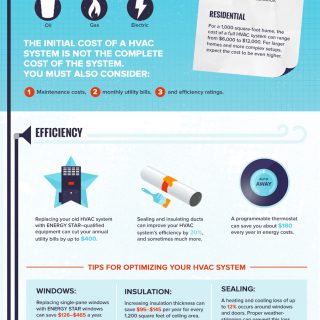Exploring The Ecological Benefits Of Warmth Pumps - A Lasting Heating Solution
Exploring The Ecological Benefits Of Warmth Pumps - A Lasting Heating Solution
Blog Article
Author-Hinrichsen Borup
In an era where sustainability and power effectiveness are critical, lots of services look for green home heating options. One such option is the heatpump.
A heatpump extracts the warmth in its environments and pumps it into your home, causing among the most effective environment-friendly central heating systems around. https://www.cbc.ca/news/canada/windsor/tips-for-getting-the-most-out-of-your-air-conditioning-unit-1.5210605 generates no greenhouse gas discharges, making it a highly lasting technology.
Power Efficiency
Heat pumps are extremely energy reliable and need little maintenance. They use less electrical power than various other heating systems and are without a doubt one of the most environmentally friendly. They work well with roof solar and can commonly pay for themselves in utility financial savings alone.
They can also supply cooling, which is fantastic for garage workshops, attic hangouts and reward areas, and home enhancements without prolonging the existing ductwork. ducted heat pump installer can even be used for retrofits in existing homes with hydronic (water-based) circulation systems such as reduced temperature level radiators or radiant floors.
Search for versions with SEER and HSPF rankings that satisfy or go beyond Canada's minimum requirements, as well as the requirements in your region. Greater rankings suggest better efficiency, which conserves you money in the future and reduces your carbon footprint. You may also get approved for refunds and rewards! The most effective units are those with a ground warm exchanger for added efficiency. These systems can take in thermal power from the ground during the winter and remove it in the summer.
Decreased Greenhouse Gas Emissions
Heat pumps operate on electrical energy and basically move heat from the air, even when it's cool outside. They have the ability to draw out the complimentary warm trapped in air fragments and move them indoors, reducing moisture while doing so.
Contrasted to gas furnaces, modern-day heatpump make use of less than one kilowatt of power per kilowatt of home heating power they generate. This makes them the most power efficient heating choice readily available with a COP (Coefficient of Performance) of 4 or more. By lowering the requirement for fossil fuels, heat pumps help reduce greenhouse gas discharges and cut various other major air pollutants.
Structure decarbonization is a global important, and the a/c market is a key driver of that procedure. Whether it's real estate investors making net zero commitments, plan manufacturers establishing exhausts restrictions, or tenants requiring greener areas, electrical heat pumps are being recognized as an important remedy. They are a cost-efficient means to reduce carbon exhausts by eliminating the need for nonrenewable fuel sources in structures.
Flexibility
Heatpump can be utilized in many types of homes and buildings-- with or without ducts. They collaborate with hot-water radiators, air-conditioning and programmable thermostats. They can replace furnaces or be installed in new houses. They can work on photovoltaic panels, geothermal systems or even area home heating sources like wastewater.
They're wonderful at delivering more warmth per energy system. For example, an air-source heat pump creates up to 3 or even more home heating systems from each electrical power system it takes in.
Obtaining one of the most from your heatpump will certainly depend upon your environment zone and high quality of insulation. Try to find versions with ENERGY STAR ratings and contrast their SEER or HSPF specs. In warmer environments, concentrate on SEER; in chillier areas, consider a system with a higher HSPF score. In addition, invest in air securing and insulation to decrease the load on your heatpump. That will certainly boost energy effectiveness and aid you reach your Web No objectives much faster.
Biomass Boilers
Biomass boilers make use of wood pellets, chips or logs to create warm and hot water. They are an excellent option for off-grid properties or those that want to leave the gas grid.
As a standalone heating system, biomass can provide adequate energy to keep your home cozy throughout the year without the normal warmth drop off of other eco-friendly innovations. They can also be used combined with solar panels to maximise cost savings and gain from RHI repayments.
A downside of these systems is the in advance cost and regular gas distributions. Usually, pellets will require to be blown into a fuel store using a vacuum cleaner system or they can be by hand fed into the central heating boiler through a receptacle. Logs are usually self-sourced from neighboring woodland or acquired wholesale. In addition to this, they call for hands-on loading and might need cleansing often.